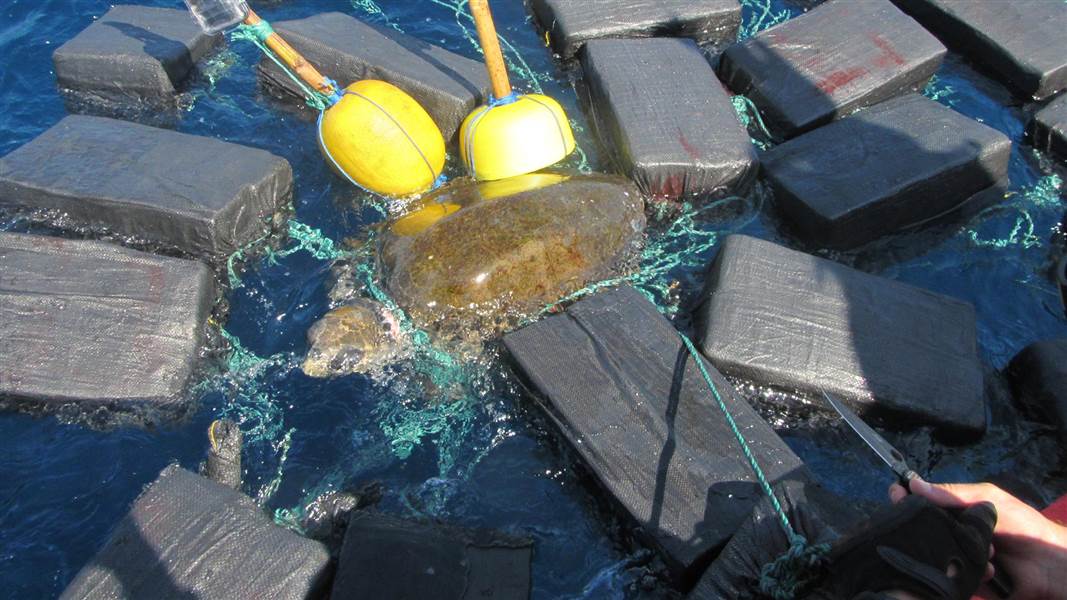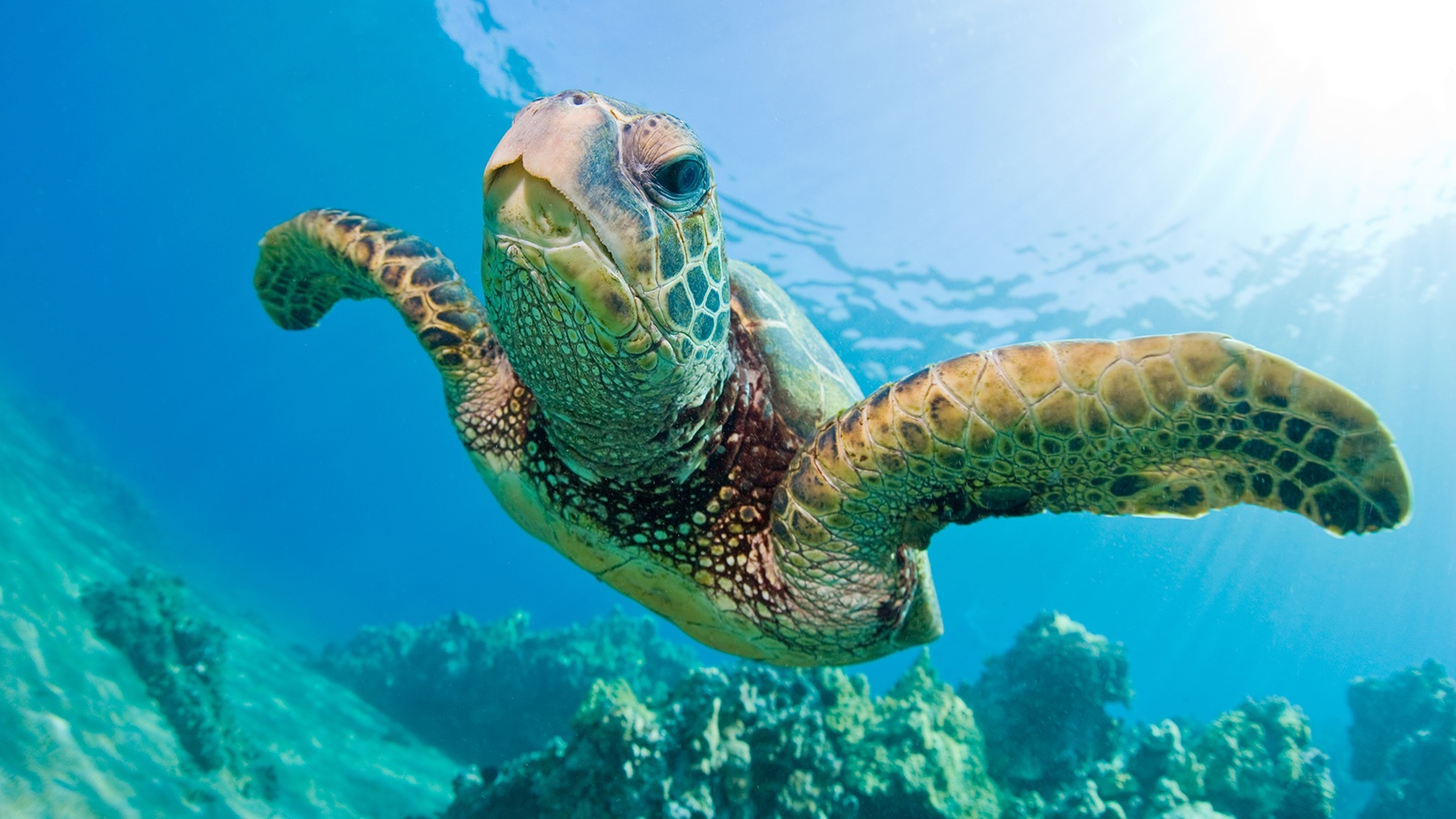News
US Coast Guard Rescues Endangered Turtle While Making $53 Million Cocaine Bust

Sunday was a big day — not just for the US Coast Guard, but a lucky loggerhead turtle. During a 68-day Eastern Pacific counter-drug patrol, which was part of Operation Martillo, the US Coast Guard found a high-speed boat traveling down drug-trafficking routes along the Central American coast. Though it had been ditched by smugglers, bales containing approximately 800 kilograms (1760 pounds) of cocaine remained.

Credit: US Coast Guard
In the middle of the 26 bales of cocaine was a trapped loggerhead turtle. More than likely, she had been stuck there for several days. Wounds had developed from her entrapment, including severe sores around her neck and flippers. After freeing the loggerhead turtle with a knife, the US Coast Guard took her aboard for a quick check-up. Then, they turned their attention to the cocaine.
The amount of cocaine confiscated has an approximate street value of about $53 million. In other words, this was not a small bust.
During their 68-day Eastern Pacific counter drug patrol, the crew of U.S. Coast Guard Southeast Cutter Thetis rescued a large sea turtle entangled in $53 million worth of cocaine.By the end of their patrol, the crew had seized a total of 14,861 pounds (6,755 kilograms) of cocaine, 14 pounds of marijuana and apprehended 24 suspected smugglers. Read here to learn more about this patrol: goo.gl/1AhL7z
Posted by U.S. Coast Guard on Tuesday, December 19, 2017
On the US Coast Guard’s Facebook page, people joked that the turtle was likely involved in the multi-million-dollar crime. Wrote one commenter:
“Righhhhht. The turtle was ‘caught’ in the line and surrounded by 53 million dollars [of] coke. It’s obvious the cartels have trained turtles to traffic cocaine for them. It guarantees the turtle, if caught, will always be let go. Well played cartels, well played.”
Another person expressed outrage about the incident, while at the same time thanking the Coast Guard. They wrote:
“I’m super angry that this poor turtle was entangled in that mess but SO THANKFUL that the USCG was there to save the day!! Great job folks!!
As IFLScience reports, loggerhead turtles can be found in temperate and tropical regions in the Pacific, Atlantic and Indian oceans. The two populations that live in the Pacific Ocean are classified as “endangered” under the Endangered Species Act. This means that if action isn’t taken, they might go extinct in the near future.

Credit: National Geographic
According to the World Wildlife Fund for Nature (WWF), one of the main threats to loggerhead turtles is fishing. This is because the nets used by fishermen can trap the creatures. To remedy this conundrum, the Turtle Excluder Devices act was developed. Essentially, the device allows a captured sea turtle to escape when it is caught in a fisherman’s net.
Before the device was widely used, an estimated 50,000 loggerhead turtles were killed in nets in the Gulf of Mexico and the Atlantic Ocean. Pollution, poaching of their eggs and meat, habitat destruction, and rising temperatures are also threats to their survival and well-being.
Ways each of us can take action to protect marine wildlife:
- The three R’s: reduce, reuse and recycle
Use Mason Jars to store pantry items, take reusable bags to the grocery stores, and avoid plastic like it is the plague. - Spread education
If people don’t know their habits are unsustainable and, as a result, are killing off species, they will be less likely to take action. Share information (such as posting this article to Facebook) in a kind manner and do your part to raise awareness about issues that affect the collective. - Adopt sustainable habits
Each of us can make an effort to reduce our individual carbon footprints. Walk or cycle to work, adopt a plant-based diet (which is lower in carbon emissions), and invest in sustainable technologies, such as solar panels, to reduce your reliance on fossil fuels.
What are your thoughts? Please comment below and share this news!
h/t IFLScience, US Coast Guard
Typos, corrections and/or news tips? Email us at Contact@TheMindUnleashed.com
